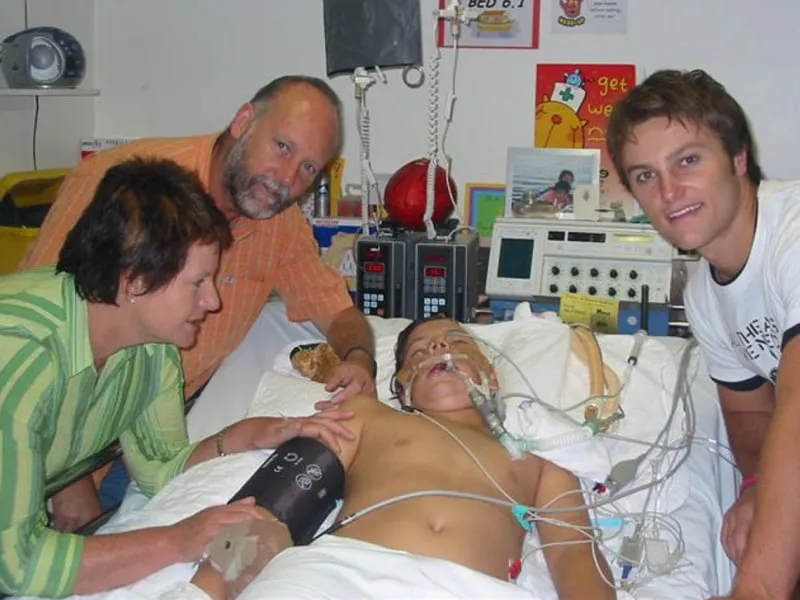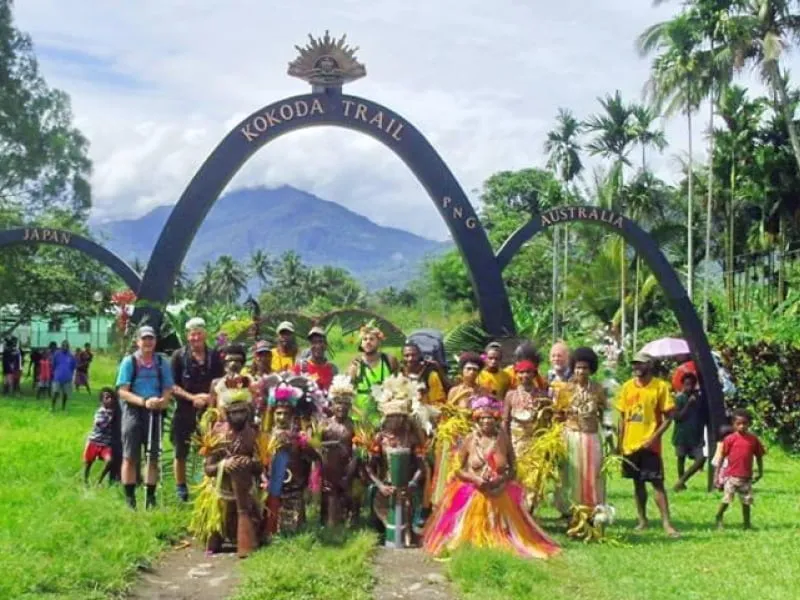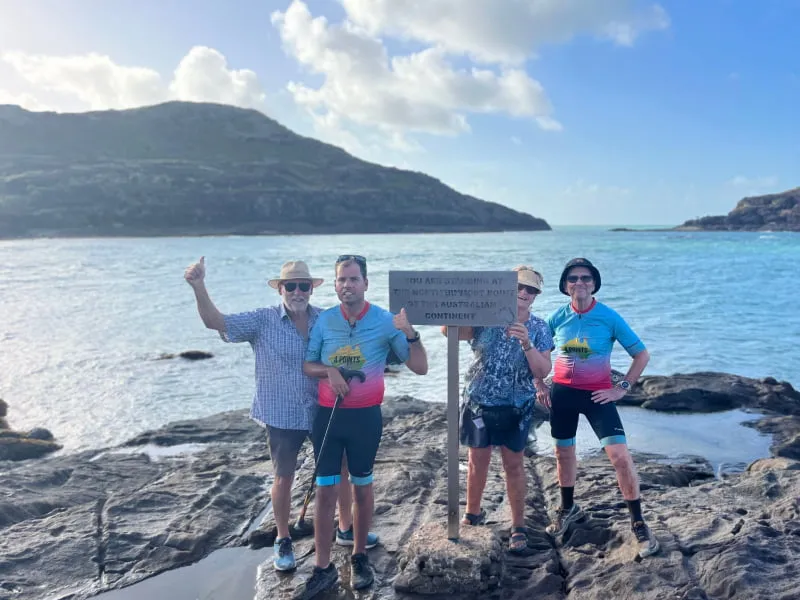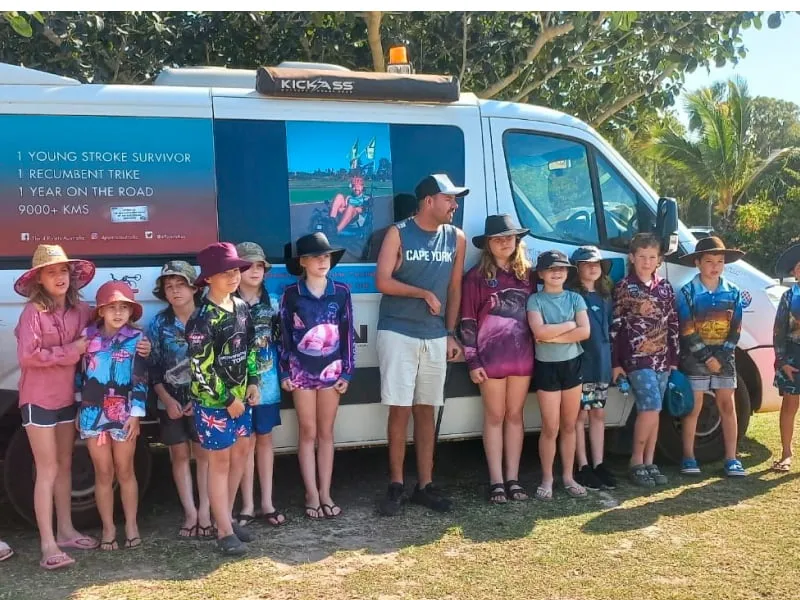When Bank Australia customer Tommy Quick suffered a severe childhood stroke, he decided not to let this event define him or stop him from pursuing an extraordinary life. Now the adventurer is riding over 1,000kms across Tasmania to raise stroke awareness, rally the community around inclusion, and raise funds for the Stroke Foundation.
In a fast-paced world where everyone seems to be in a rush, there’s nothing Tommy Quick appreciates more than someone slowing down. He recalls walking to lunch on a beach with a group of people he would soon be speaking to about his aspirations as a childhood stroke survivor: While everyone else took off ahead, one friend dropped back to talk with and walk alongside Tommy. “I know people are busy, but when people can slow down and walk at my pace, that’s what I love the most,” Tommy says.

A life-altering experience
Tommy was just 12 years old when he suffered a severe stroke, caused by a brain bleed the size of a golf ball. He vividly remembers the evening before it happened. He was looking forward to celebrating his uncle’s 50th birthday that weekend, and eating a delicious roast cooked by his mum. The next morning, he experienced a strange migraine and extreme thirst. “I was unconscious five minutes later,” Tommy says. “I woke up five weeks and two days later from an induced coma.”
When he came to, his mind and body were completely altered. Tommy didn’t know what had happened to him, and was convinced he’d fallen into some kind of video game. During his five months in hospital, he had to relearn everything from scratch: talking, walking, eating. When he spoke his first word, it was equal parts a sense of frustration from trying to explain something and a moment of self-advocacy: “no,” he said. It also rang true as a refusal to let this event define his life.
This resilience has come to characterise his views around the stroke. “I dislike the word ‘disabled’ and want to emphasise that anyone can achieve their own goals,” Tommy says. “They’re not disabled, they are in many different ways abled. It isn’t the individual that needs to change, it’s the environment around the individual.”

From survivor to advocate
It didn’t take long for Tommy to turn his stroke into a source of motivation. In 2014, he set out to hike the Kokoda Trail – one of the world’s most physically demanding tracks. Despite the lasting physical and mental effects of his stroke, Tommy completed the gruelling 96km trek in 12 days, alongside his father, uncle, and best friend.
“Since day one, I have never come across a person like Tommy,” says Arnold Jinga, head guide of the Kokoda Trail. “I couldn’t believe what I was seeing – physically witnessing what he did.”
“Tommy had the heart,” added Tony Ogonemi, another Kokoda porter. “As long as you have the heart, you can do anything in life.”
It’s this same heart that has driven Tommy to take on ever bigger challenges, always with the goal of raising awareness and funds to support people affected by stroke.

An epic Australian journey: 4 Points Australia
In 2021, Tommy undertook his most ambitious challenge yet – the ‘4 Points Australia’, where he rode his recumbent trike across Australia’s four corners. Over 189 days, Tommy cycled a staggering 9,889km, overcoming a near-fatal car crash (which landed him in hospital with a broken pelvis and leg), mechanical delays, and extreme conditions, all while raising an incredible $124,000 for the Stroke Foundation.
Now, in 2025, Tommy is setting his sights on the Apple Isle.

‘Takin’ on Tassie’: A ride for inclusion
This March, Tommy will embark on a 1,100km ride through Tasmania, which will be quite different from his previous adventures. While past trips focused on distance, the ‘Takin’ on Tassie’ journey is about slowing down to focus on genuine community connection and engagement. The motto is simple: “fewer kilometres, more conversations, and a lot more hills!”
Over 30 days, Tommy will ride from the northwestern tip of Tasmania to the southeastern point to raise awareness about stroke in young people. “People often think strokes only affect older adults,” Tommy says, “but there are over 124,000 Australians living with stroke under the age of 54. 540 kids will suffer a stroke this year, and one third of those kids will be under the age of one.”
As part of the journey, Tommy will be stopping at schools to talk to children on the topic of difference, inclusion and celebrating all abilities. “Because Tassie is smaller, we want to focus on being in schools, educating kids about inclusion – the disparity of one kid to another,” says Tommy. “I want to teach them the importance of walking at someone else’s pace.”
Follow Tommy’s 2025 Tassie adventure here or make a donation to support his efforts to help stroke survivors.





LiamNeal-04493.webp)

